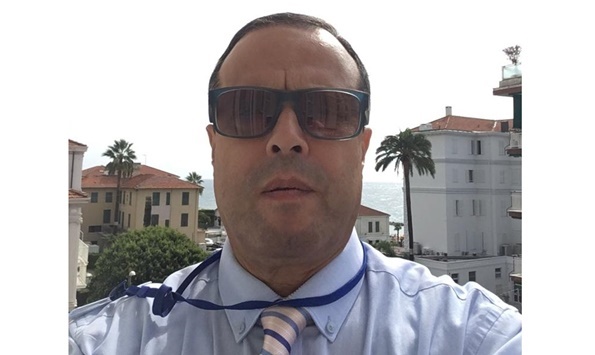The Qatar Press Centre (QPC) hosted Sunday a seminar on 'The double standard in the international community during war on Gaza' by British journalist David Hearst and moderated by Al Jazeera journalist Osman Ayet Farah.
The moderator thanked the QPC president Saad Mohamed al-Rumaihi and director-general Sadiq al-Amari for organising the seminar, after introducing British “Middle East Eye” website editor-in-chief Hearst.
The seminar aimed to shed light on the Palestinian issue, in light of the spread of fake news and media misinformation, the killing of journalists and civilians, and crimes committed by the occupation forces in Gaza.
At the beginning of the seminar, Hearst emphasised that double standards were what contributed to shaping the international community’s interaction with Gaza.
He stressed the need to work on correcting this situation, as fairness in international responses to conflicts is necessary to achieve true justice and peace.
Pointing out the need to separate the Western public opinion from that of the leaders, the journalist stated that "there is a Zionist lobby that has complete control over Western liberal society, and there are many members of the US Congress who fear losing Zionist funding or support if they present a different point of view”.
Hearst said: “During my work at the 'Guardian' newspaper, I provided honest and unbiased coverage of the second intifada, and no accusations were made against me of double standards.”
“When I asked an Israeli diplomat about Israel’s biggest enemy, he did not tell me Hamas or Hezbollah, but rather his answer was: the BBC and the Guardian,” he continued. “However, I see a major change in their editorial policy, and that they have become more biased and sympathetic to Israel.”
“There is no freedom of the press in the West, as the Western media has become part of the conflict, a partner in it,” Hearst added.
Hearst on Hamas: ‘Hamas is rooted in Palestinian society and cannot be eliminated. It is not a terrorist organisation for many people in the world, and there are many victims on the Palestinian side as a result of this conflict.’
Hearst explained that “the Israelis do not have a clear strategy out of this war, and they are neither prepared nor trained for ground warfare, so they focus on air attacks and the massive destruction of buildings.”
He stressed that “Israel is not ready for a ground invasion – many indicators confirm this – and most military operations take the form of air operations and do not include a ground invasion.”
The journalist added that “the pressures on Israel will increase in the coming days to stop the war, and there will be a special focus on (Israeli Prime Minister) Benjamin Netanyahu, expecting that the United Nations and the Arab countries will play a decisive role in stimulating the negotiations and the ceasefire processes.”
Hearst on destruction of Gaza: ‘Gaza has been subjected to massive levels of destruction similar to the impact of an earthquake, and the current situation is considered one of the worst times. We hope that international efforts will find a solution to this crisis. The destruction and loss of lives make the situation more complicated and require immediate international intervention.’
“I have never seen in my life or in my professional history such ferocious and violent destruction, and the deliberate bombing of hospitals and civilian facilities,” Hearst said. “The Israelis are using misleading propaganda to justify this, and cutting off communications is unacceptable, as Gaza cannot be isolated from the world. They need to communicate with hospitals and doctors."
He considered “deliberately cutting off communications as a dangerous escalation in the current crisis” and stressed the need for access to medical services and continued communication with the outside world.
Hearst pointed out that “there is only one hospital, Al-Shifa Hospital, that deals with serious medical injuries” and with the important role it plays in providing healthcare in these difficult circumstances, we hope that “this hospital will continue to provide the necessary medical care to the injured”.
Hearst on Palestinian prisoners: ‘The issue of Palestinian prisoners is sensitive and important, and it is good to hear that there is a desire to liberate all Palestinian prisoners. Qatari mediation may be an opportunity to look for a solution to this difficult issue, as liberating prisoners is a goal that must be pursued to achieve peace and stability.’
Hearst said: “We heard from (Hamas spokesman) Abu Ubaida that he wants to liberate all Palestinians. I think it is a difficult matter regarding the number of prisoners who need to be liberated, but there are priorities on both sides and this will be agreed upon.”
In statements to the press, QPC president al-Rumaihi said: "The QPC is keen to host thinkers, writers, politicians and intellectuals in Qatar and the Arab world with the aim of shedding light on the ideas they hold.”
“Today's symposium differs from other seminars previously organised by the QPC, as it concerns a media figure who has weight in the Arab and international world,” he said. “It also comes at a pivotal moment in the history of our nation, represented by what Gaza is being exposed to from a barbaric Zionist aggressor.”
“We appreciate the presence of David Hearst (giving) a European point of view defending our rights, as well as conveying his voice to the Arab world, and showing that there are points of view that support the Arab position,” al-Rumaihi added.
He stressed the necessity of having Western media entities that provide coverage on Arab issues and promote them in the West, stressing that the Zionist lobby’s control over the Western press has contributed greatly to promoting lies and fake news about the truth of what is happening in Gaza.
At the conclusion of the symposium, al-Rumaihi and al-Amari presented Hearst with a QPC shield.
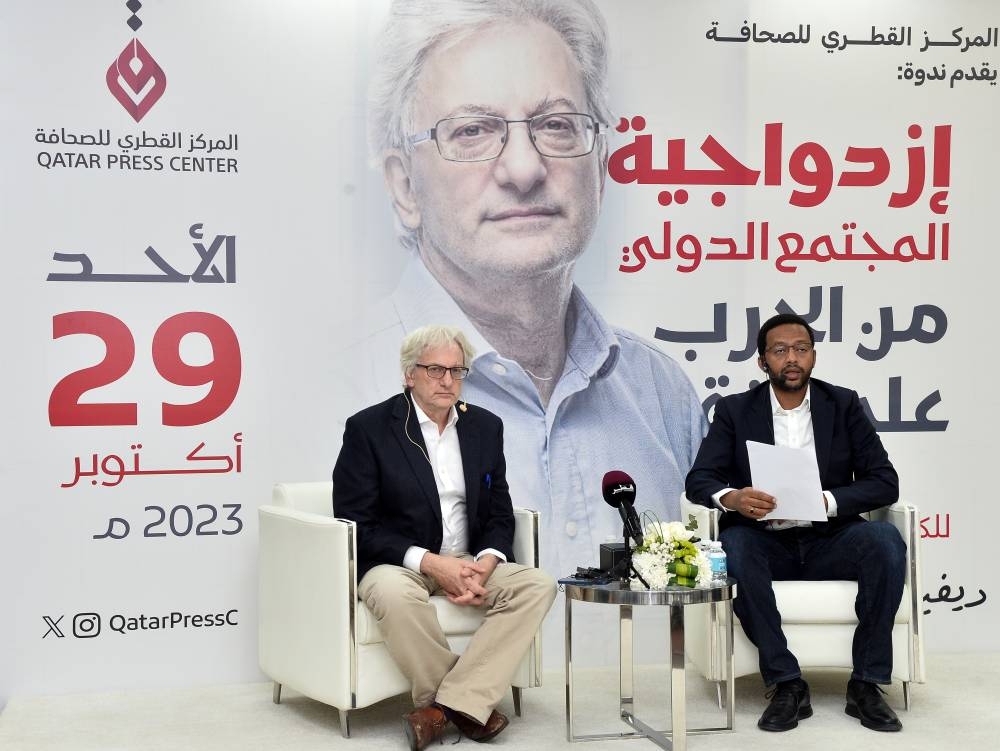
David Hearst and moderator Osman Ayet Farah at the seminar Sunday. PICTURE: Shaji Kayamkulam
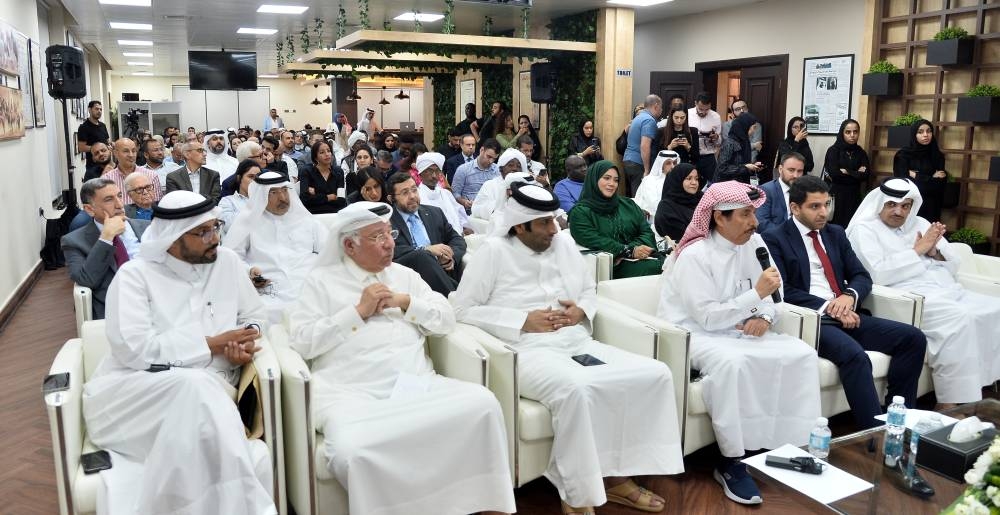
A view of a section of the audience. PICTURE: Shaji Kayamkulam
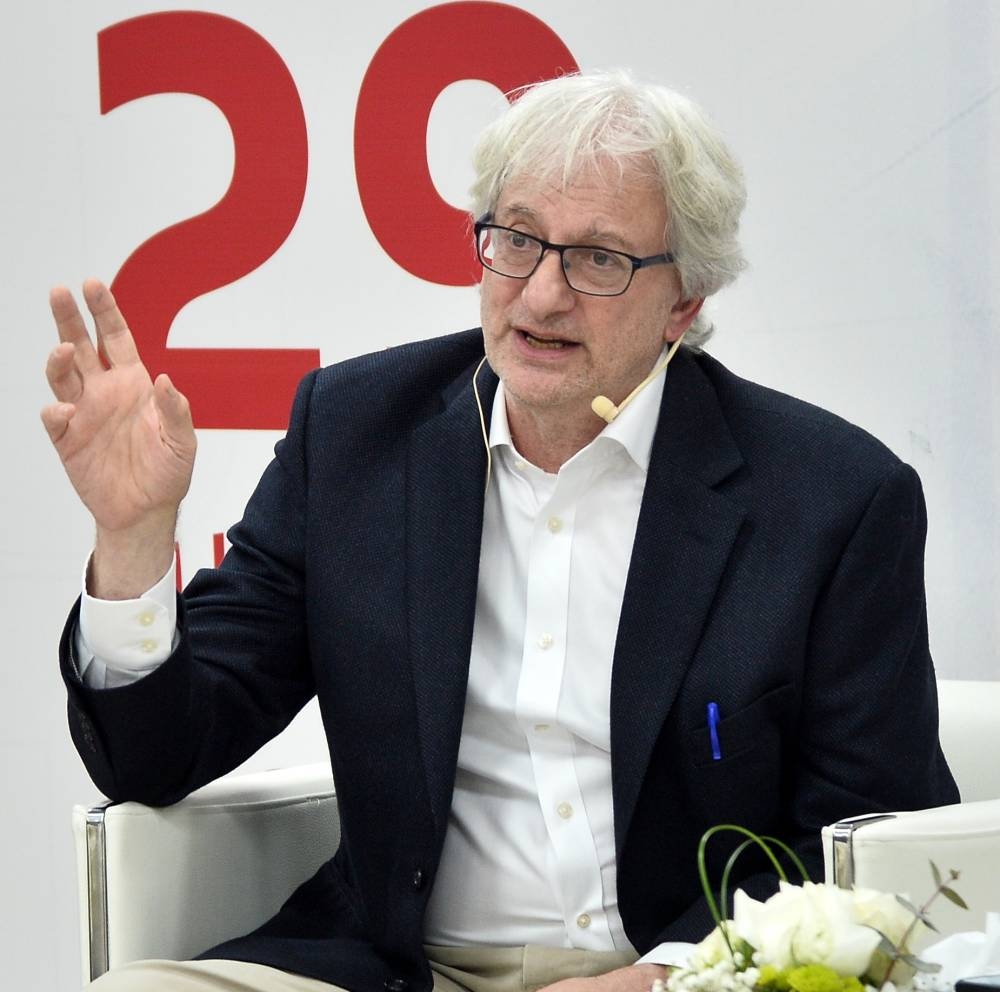
Hearst making a point. PICTURE: Shaji Kayamkulam
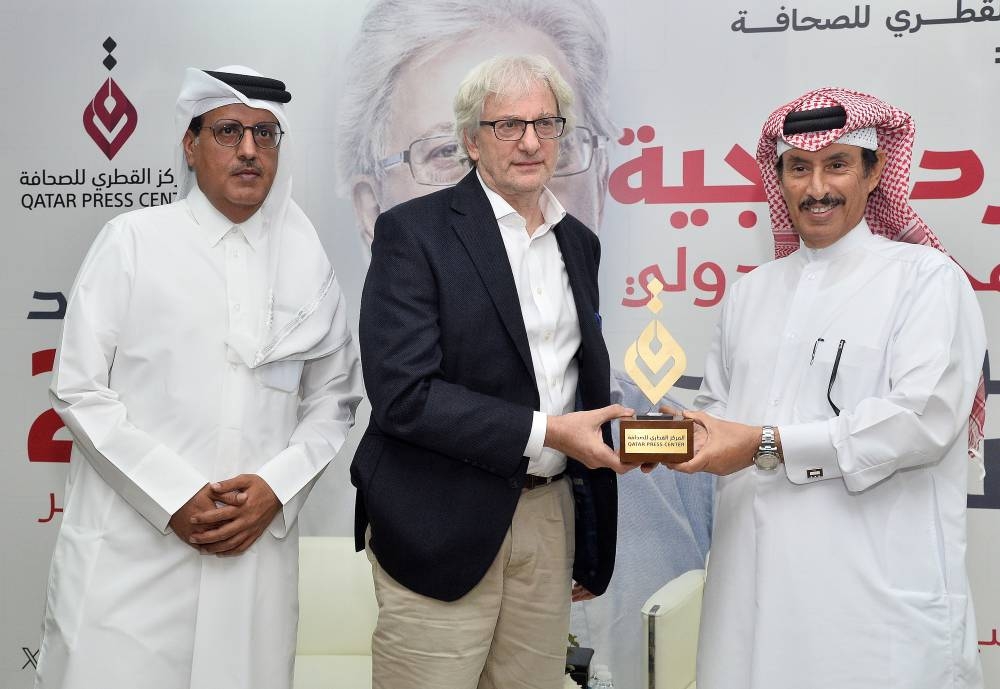
QPC president Saad bin Mohamed al-Rumaihi (right) and director-general Sadiq al-Amari presenting Hearst with a QPC shield. PICTURE: Shaji Kayamkulam

